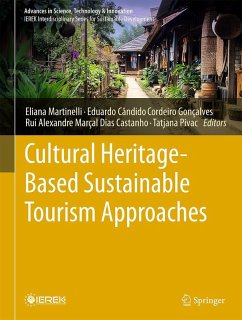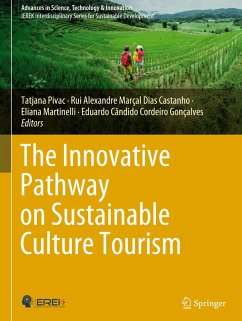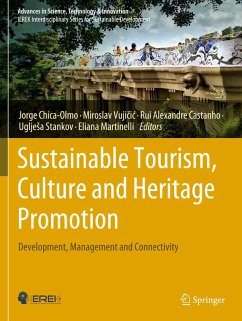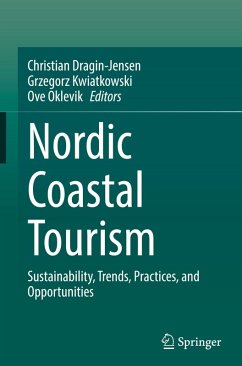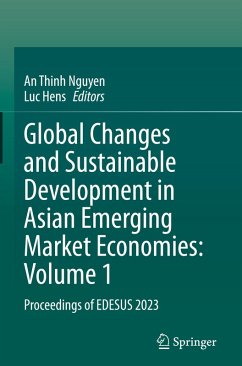
Rethinking Sustainable Tourism in Geographical Environments
Theory and Practices
Herausgegeben: Zajadacz, Alina

PAYBACK Punkte
53 °P sammeln!
This book covers the current escalation of social problems related to the unstable political situation, economic crisis, as well as growing problems related to the state of the natural environment (existential climate crisis; pollution of land, oceans, and the atmosphere; severe declines in biodiversity) which requires a new rethinking of the sustainable tourism paradigm, in relation to the realities of the modern world, based on the practices observed in the tourist services sector. "Tourism is like fire, you can cook food on it, you can also burn down your house"-says the proverb. On the one...
This book covers the current escalation of social problems related to the unstable political situation, economic crisis, as well as growing problems related to the state of the natural environment (existential climate crisis; pollution of land, oceans, and the atmosphere; severe declines in biodiversity) which requires a new rethinking of the sustainable tourism paradigm, in relation to the realities of the modern world, based on the practices observed in the tourist services sector. "Tourism is like fire, you can cook food on it, you can also burn down your house"-says the proverb. On the one hand, it allows for the regeneration of physical and mental strength of visitors, as well as provides funds for the economic development of the destination, but on the other hand, it contributes to a lot of damage to the geographical environment. The period of "stopping" of tourism during the lockdown caused by the COVID-19 pandemic allowed many areas to be relieved of the tourist traffic, which resulted in the observed revitalization of the natural environment, but also huge social and economic problems in destinations that are largely dependent on income from tourism.
The rapid resurgence of tourism after the pandemic restored revenues but also caused many social tensions. The problem of overtourism returned, and residents protested, calling for "tourists to go home." The entire tourism system requires a thorough analysis of the complex consequences of its development. This book presents many challenges facing contemporary tourism. Its theoretical and practical aspects provide a useful knowledge base for both researchers studying changes in tourism and practitioners in the tourism services sector. The content also serves as an inspiration to search for optimal solutions aimed at the sustainable development of contemporary and future tourism.
The rapid resurgence of tourism after the pandemic restored revenues but also caused many social tensions. The problem of overtourism returned, and residents protested, calling for "tourists to go home." The entire tourism system requires a thorough analysis of the complex consequences of its development. This book presents many challenges facing contemporary tourism. Its theoretical and practical aspects provide a useful knowledge base for both researchers studying changes in tourism and practitioners in the tourism services sector. The content also serves as an inspiration to search for optimal solutions aimed at the sustainable development of contemporary and future tourism.



